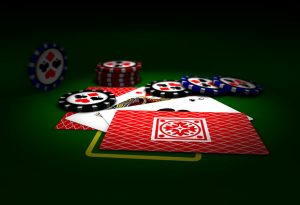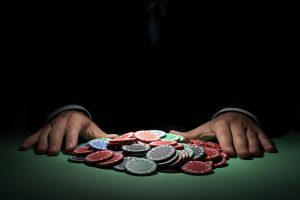 In previous articles, we discussed the basic structure of statistics in interpreting game adaptation. If we think about it, adapting to the opponent is simply the alteration of frequencies, strengthening or weakening, a dance of strategies reacting to each other. But there is one aspect of poker that goes beyond adaptation.
In previous articles, we discussed the basic structure of statistics in interpreting game adaptation. If we think about it, adapting to the opponent is simply the alteration of frequencies, strengthening or weakening, a dance of strategies reacting to each other. But there is one aspect of poker that goes beyond adaptation.
When we talked about game flow, we said that frequency can be understood as a broad strategy, which can also be automated-divided into separate parts. We can look at frequency and say it is 33%, but we can also look at frequency and see it as the flow of the game.
Adaptation in the game works similarly. There are certain details that depend exclusively on statistics and broad strategies. This means there are places where we make range-based decisions, decisions justified by broad or range-based reasoning.
For example, after c-betting, you get a nut flush draw on the turn. This is a situation where a semi-bluff on the turn does not depend on psychology. This bet is specifically argued by statistics or range. You bet here because the opponent often folds in such a situation, and you will have enough nut hands on the river, etc. Psychology has nothing to do with it here.
Essentially, the vast majority of poker play consists of range-based decisions. Sometimes even a big call on the river or a check-raise big bluff does not fall into the psychological moment because these are decisions that can be mathematically calculated.
But what about when it cannot be calculated? What about when range-based abstractions are not enough, and you really don't know what will happen next?
We have previously discussed the comfort zone. A player's comfort zone is a circle of situations where he feels confident. His zone consists of certain sets of actions that he believes are available to him.
Your job as a poker player is to figure out what makes up the opponent's circle and then step beyond its boundaries. Ultimately, if certain actions are outside the opponent's comfort zone, it means he does not see such decisions as options. His poker structure prevents him from doing so. Find out how the other player's scheme limits him. And then, when you start pushing him where he did not expect at all, the opponent will not follow you.
This vision leads us to the idea of momentary aggression. Momentary aggression is not just being aggressive, intense raising, or betting. It is much more.
To make a range-based decision, we have to fight with our range to construct an optimal frequency. This is a centralized, planned attack method. But a vivid decision is a constant, short-term event. It is a decision that the opponent has one hand, one state, and an attempt to outplay him with that one hand.
You might think this is similar to thinking from hand to hand, but it is not quite that. Playing a hand in the moment, philosophically speaking, means facing it as a separate moment, not just as a simple cog in a big match. It means stopping the mind's mechanisms,
stopping all other actions. When the situation you are facing is complex enough, deep enough, and far from the center, and the bet the opponent just made is “staring” you straight in the face, it is enough to say “I can choose a better spot” or “essentially this is a bad play, no matter what he has.” The cup of delays and excuses is full. The opponent has forced you to come to a decision from which you can no longer escape. Of course, this could be a decision that costs you all your chips, but this decision is above that. It is a situation where you have to put all your mental resolve into one decision. Typically aggressive players can force you to play many big pots, but good players will force you to make momentary decisions. This type of aggression is fiercer than trying to win many pots. Some aggressive players can be persistent but quickly subdued with broad adjustments. Momentary aggression is different. Playing against a good player will make you feel like you can't make a mistake. You can't run away or turn away. Every encounter is like a test. Every blow must be taken or parried.
What does he have? What does he think I have? The world compresses into one massive moment, and the action depends on you. Momentary aggression culminates in one of those frozen-in-time places where everything depends only on you. It is the highest point of psychological warfare.
You cannot aim to use momentary aggression; you can only aim to make smart, powerful bluffs. But if they are done skillfully and smartly enough, they will eventually turn into a momentary feeling. This is how a player becomes a formidable opponent – by making one good, thoughtful decision at a time.





